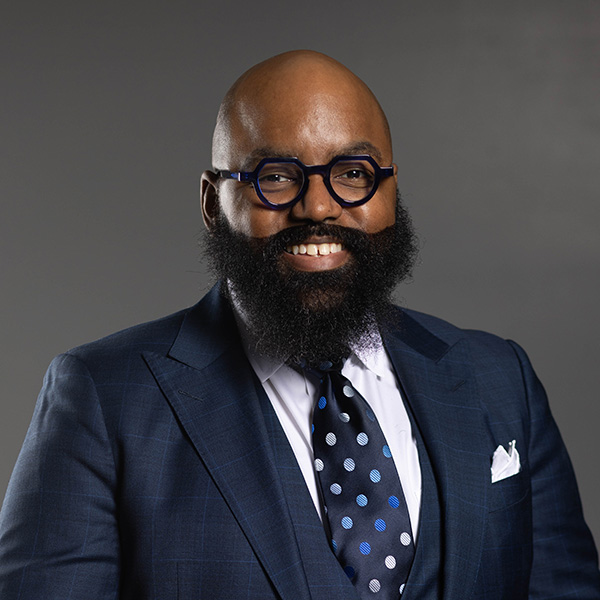Jean-Luc Marion is one of the world’s leading philosophers and theologians. He did doctoral work in philosophy with Jacques Derrida and also learned from such theologians as Henri de Lubac and Hans Urs von Balthasar.
 Marion teaches at the Sorbonne in his native France and is the Greeley Professor of Catholic Studies and Professor of the Philosophy of Religions and Theology at the University of Chicago Divinity School. He is the author of a number of books, including “The Erotic Phenomenon” and “The Idol and Distance.”
Marion teaches at the Sorbonne in his native France and is the Greeley Professor of Catholic Studies and Professor of the Philosophy of Religions and Theology at the University of Chicago Divinity School. He is the author of a number of books, including “The Erotic Phenomenon” and “The Idol and Distance.”
He was elected as an immortel by the French academy in 2008 -- an honor previously held by his friend, the late Archbishop of Paris, Cardinal Jean-Marie Lustiger.
Marion was interviewed by members of the class “Writing as a Christian Practice” at Duke Divinity School along with fellow class guest David Van Biema, former religion writer for Time magazine. He spoke about the potential application of some of his work to Christian leadership. The audio clip is an excerpt from the following edited interview.
Q: There is great suspicion today towards people and institutions of power. What would a Christian account of power be?
Not being a minister or priest, I’m not in a situation to answer your question. I was fortunate enough to be close to people who have exactly shown what Christian leadership should be. I met Cardinal Jean-Marie Lustiger in 1968 at the Sorbonne. We were close friends until his death. I learned a lot from him about Christian leadership.
Christian leadership implies seeing the situation from the point of view of God. The temptation is always to see the situation as a non-Christian leader could see it, just adding some other concerns directly connected to the issues you are interested in. You see the general landscape the same way as any CEO or any advisor to the president would. The Christianity of your leadership remains in the periphery. If you do that, you are done. Because you will say what anyone could say, and do as anyone would do: take care of the special interest of your church or your corporation.
Lustiger made a difference because he saw the history of modern France in a very different way than any political leader (though he was asked to advise at least two presidents of France). He reached out very boldly. For instance, he used to say that there is no de-Christianization of France. Why? Because France was never completely Christian. Contrary to Germany, Italy, Spain and the Netherlands, there was no moment in the history of France where the self-consciousness of the nation overlapped exactly with Catholicism. The relation of the French nation with Catholicism has always been one partly of conflict, partly of misunderstanding, with each trying to use the other.
Leadership is the ability to see the detail of social-political life very concretely. In a very famous text by Pascal in his “Pensées,” we see the doctrine of the three orders. The three orders are three points of view.
From the first point of view you see the world as visible, according to bodies, matter and the visible world. In that order, the leaders are the king, the president, the CEO of a corporation, the banking system and so on.
The second order is the order of the spirit. This is the invisible world of rationality. It includes the sciences, philosophy, art and literature. You can be completely unknown in the first order and be the leader in this second order. For example, Archimedes was a prince in the family of a king in Sicily, but he was really a leader as a mathematician. Mathematicians, like Einstein, are the kings of this second order.
The third order is charity, love or what art understands. In that order the saints, lovers and Christ are kings.
The lower orders are not seen by the upper orders. The president of the United States is not supposed to be a scientist or a saint. He has a job as president of the United States, period. The second order does not see the third, but sees itself and the first order. The first two cannot see the third order, but the third can see what is going on in the first two.
The question of ecology and global warming is a typical case. The second order is asked to judge what the first order has done. We would prefer that the second order be unanimous, which is not exactly the case. But let us take for granted that there is a unanimous position of the second order about global warming. In that case, the second order can be the judge of the first order.
The same is true for the third order. It can be the judge of the two first orders, which appear in a special light to the third order.
Christian leadership should be something like that. The point is not to tell the two orders what they should do or think, but to explain to them what they are doing or thinking, which they are not aware of. The meaning of what they do is different than what they imagine.
Q: Lustiger’s rethinking of the question of the de-Christianization of France doesn’t sound like looking at it “from God’s point of view.” It might have been proposed by a historian or a sociologist.
Yes, my first example does not exactly match what I said. But a comment on that example: It is a very different view from the usual rhetoric in France. People always repeat that France is the “oldest daughter of the church.” But this rhetoric has no historical foundation. But to say that you have to take a non-ideological point of view. You have to be backed by another order.
Lustiger used to ask why Catholics should be the majority in France. Why do they complain they are no longer? What is God’s view about being the majority in a society? It is not one of the commandments. We were never told, “Be the majority! Take over power.” We may ask God not to be led into this temptation.
Lustiger used to point out that when the question was asked of whether Israel should have a king like other people, there were two stories: In one the prophet says, “Yes, Saul will be king.” Another text says, “This is a sin against God -- no king!” We have no third story to explain to us what was decided! The question of the king in the story of Israel has always remained very controversial.
What we have to do is to be really a Christian church.
Q: You’ve done a lot of work around love. In the Methodist tradition, we talk about “being perfected in love.” How does your work on love affect how Christians pursue their life?
From the beginning I was puzzled by the fact that Christians say repeatedly that “God loves us, we should love each other.” But we have quite a poor discourse about what love is. I was very much impressed that that question was not really asked, or if it was, no consistent answer was given.
I tried to reconstruct a logic of love. Love is not about feeling or sentiment. Love is a logic. You have the logic of economics, power, war or chess. In every case there are possibilities and rules. So, too, in the case of love. These are very well-established. If you don’t follow the rules, it will be a disaster.
The only real objection made to “The Erotic Phenomenon” was about the last five pages, when I say that there is only one way to love, and that we share it with God. The only difference between God and us is that God is much better at loving than we are. He’s a much more brilliant and talented pitcher or batter than we are. But it is the same ballgame. Everything is equivocal between God and us regarding being, time, power, death and so forth. But there is something univocal: love.
Even if all the rest I have written is wrong, I’m still convinced that this is true.
Q: I’m curious on why you are comfortable putting love into a logic. I’m also curious why you say that the love that we have for each other is the same kind of love that God has for us. Isn’t God is supposed to be something totally different?
First, God is not “something,” because God is not a “thing.”
The second point is that what we know about God is mostly what God is supposed to have said to us. What God said to us was about love -- the way of loving. When I say there is only one way of loving, this explains the difference between the orders: The two first orders are based on some very clear principles. In the first order, what we expect is justice. Justice is about equality: each one should get what he deserves.
The second order, understanding, is based on rationality: either the principle of non-contradiction; or, in metaphysics, the principle of sufficient reason: Each thing is either a cause or an effect, and they are connected all together. We cannot understand a phenomenon alone.
The two first orders, justice and reason, are based on an exchange. The third order is based on the gift. When something is given, nothing is given in return. I don’t deny that in the third order, I can give a gift and also be given something. But it is not because I give something to the other that he will give something to me. Communion is two free gifts which cross each other. There is no exchange.
More than that, in the gift there is no exchange because no thing is given. That’s the paradox of the gift. When we give, we give nothing. We give our lives, our time, love, attention. We don’t give a thing. When we give a thing, when we give a jewel to a lady or something like that, this thing is only the symbol of the gift. The real gift is non-real.
To love, we have to obey some rules. Love is not a question of justice. It is not because of justice that we love the other. It is not unjust not to be loved. It is very dangerous for any kind of religious speech to hint at a distinction in reason, by saying, “In some fields there is rationality, in others there is faith.” No! Faith and love are forms of rationality. It is not the usual economic, mathematical rationality. But there is a rationale. We can learn that rationality in literature, in movies, in stories. Why is literature important? Because in literature you learn the, if not well-known at least well-practiced, rules of loving. People should read Shakespeare or Proust or James more often. It will allow them not to fail in their love.
Q: How do we love a person without turning them into an object?
Let us start with some paradoxes: The first is that I can know somebody else as long as I don’t love that other. In daily life and social relationships, we can know perfectly well the other with whom we are dealing. When you have a business appointment, you try to know more about the other to be in a good situation to make a deal. All of us are very well-known by the federal agencies with all our files. They have a lot of information about us. They know us because they don’t love us.
When you start to love, to “know” the other means something completely different. There are all those websites to find the right partner to date. I would even say the more information you have about the other, the less chance you will find your match! Why? Because to know someone romantically has a completely different meaning. In the real experience of being in love with someone, the more I love the other, the less I know the other. If one day you can say, “I know everything about you,” it is probably the end. The more I love, the less I know.
This is the difference between the idol and the icon. The object plays the role of the idol. The object is nothing but what is seen. The object matches the requirements of the subject’s desire to see. It is the mirror of the subject, in fact. That’s the idol.
With the icon, I don’t intend to see. What I want is to be seen. In front of the icon you pray. You speak to it and listen and even if it is silent, there is something like an answer. In an erotic situation, what I hope for is to be seen in a privileged way by the other. That’s why we gaze in the face of the other.
If you want to have more information about the other, you should not gaze into his face. See his ID, get information and data on him, try to see his attitude, what he’s doing with hands, or even any part of his face -- but not the eyes. When you gaze at someone’s face, you see the two black holes. There is nothing to see. Our intention is not to see something. Our intention is to see whether, through those two black holes, he or she sees me. I wonder whether he’s focusing on me!
Q: How can pastors incorporate philosophy into parish ministry?
I’m not convinced that philosophy has a special role in ministry. When Pascal decided to give up mathematics, he said to a friend, “Mathematics are the most beautiful game in the world. But, after all, it’s a mere game. And I have no time to play now.” Philosophy is the most exciting game I’ve ever experienced. But after all, it is only that.
Philosophy is needed because it is one of the most powerful ways to interpret reality. There is more rational light shed on the world by philosophy than by any technological or scientific view. The fact that we face many threats in the world is directly connected to the fact that technology is not strong and subtle enough to understand what is going on. Technology allows us to impose an order. Okay. But science as technology cannot say a word about whether this should be enforced. And what is enforced may have good results or not. The result of the application of technology to the real world cannot be appreciated by a technological rationality at all, but only by something like humanities or philosophy.
So philosophy is very important. It is confusing when religious leaders assume a weak or wrong philosophical position, without being aware, and imagine that they have something biblical. It’s not! It is old-fashioned, worn-out, bad philosophy!
Philosophy is useful to keep us from being deceived by ideology. But philosophy as such is never the solution. What ministers or churches have to do is to convey the biblical revelation. They should never take at face value those claims and ideologies that appear to be biblical but in fact are not.
In this country, it is very clear that fundamentalism is often the confusion between something which is biblical and something which is not. Philosophy may be useful for that: to reestablish the critical sharpness of revelation.






